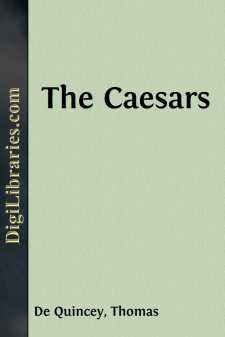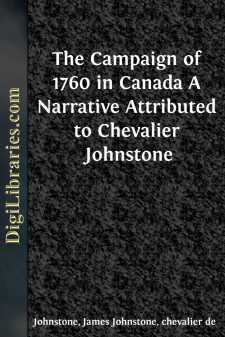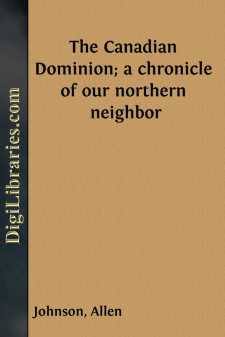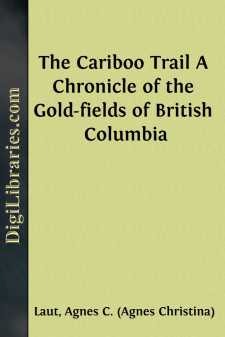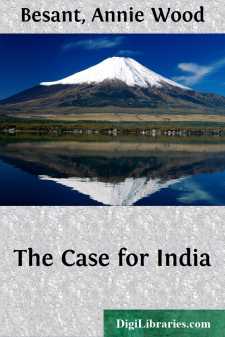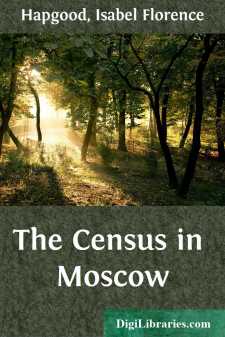History
- Africa 30
- Americas (North Central South West Indies) 50
- Ancient 68
- Asia 58
- Australia & New Zealand 8
- Canada 41
- Caribbean & West Indies 1
- Civilization 20
- Eastern Europe 12
- Europe 310
- Expeditions & Discoveries 60
- General 77
- Historical Geography 1
- Jewish 9
- Latin America 3
- Medieval 8
- Middle East 13
- Military 248
- Revolutionary 8
- Study & Teaching 5
- United States 353
- Western Europe 56
- World 13
History Books
Sort by:
THE CÆSARS. The condition of the Roman Emperors has never yet been fully appreciated; nor has it been sufficiently perceived in what respects it was absolutely unique. There was but one Rome: no other city, as we are satisfied by the collation of many facts, either of ancient or modern times, has ever rivalled this astonishing metropolis in the grandeur of magnitude; and not many—if we except the...
more...
ATTRIBUTED TO CHEVALIER JOHNSTONE. Hope that heavenly, healing balm, that gift from Providence, blended with persecutions to blunt the sharpness of their sting and hinder the unfortunate from being overwhelmed, and sinking under the load of their afflictions, never dies out—never abandons the distressed. "We don't believe in dangers," says Machiavel, "until they are over our heads;...
more...
PREFACE. The site now occupied by the two cities of New York and Brooklyn, and over which they continue to spread, is pre-eminently "Revolutionary soil." Very few of our historic places are more closely associated with the actual scenes of that struggle. As at Boston in 1775, so here in 1776, we had the war at our doors and all about us. In what is now the heart of Brooklyn Revolutionary...
more...
PRELUDE Seldom, in the annals of war, has a single campaign witnessed such a remarkable series of reverses as did that which began at Boston in March, 1776, and ended at Morristown in January, 1777. Only by successive defeats did our home-made generals and our rustic soldiery learn their costly lesson that war is not a game of chance, or mere masses of men an army. Though costly, this sort of...
more...
by:
Allen Johnson
CHAPTER I. THE FIRST FIFTY YEARS Scarcely more than half a century has passed since the Dominion of Canada, in its present form, came into existence. But thrice that period has elapsed since the fateful day when Montcalm and Wolfe laid down their lives in battle on the Plains of Abraham, and the lands which now comprise the Dominion finally passed from French hands and came under British rule. The...
more...
THE 'ARGONAUTS' Early in 1849 the sleepy quiet of Victoria, Vancouver Island, was disturbed by the arrival of straggling groups of ragged nondescript wanderers, who were neither trappers nor settlers. They carried blanket packs on their backs and leather bags belted securely round the waist close to their pistols. They did not wear moccasins after the fashion of trappers, but heavy,...
more...
CHAPTER I. PRE-WAR MILITARY EXPENDITURE. The Great War, into the whirlpool of which Nation after Nation has been drawn, has entered on its fourth year. The rigid censorship which has been established makes it impossible for any outside the circle of Governments to forecast its duration, but to me, speaking for a moment not as a politician but as a student of spiritual laws, to me its end is sure. For...
more...
by:
Catherine Clive
INTRODUCTION Among other things, the licensing act of 1737 stipulated that Covent Garden and Drury Lane exclusively were the patented and licensed theaters (respectively) in London, a fact directly related to the revolt of prestigious players six years later. Although there were sporadic performances of "legitimate" drama in unlicensed playhouses between 1737 and 1743, full-time professional...
more...
FROM the end of the thirteenth to the beginning of the fifteenth century may be called the golden age of mystical literature in the vernacular. In Germany, we find Mechthild of Magdeburg (d. 1277), Meister Eckhart (d. 1327), Johannes Tauler (d. 1361), and Heinrich Suso (d. 1365); in Flanders, Jan Ruysbroek (d. 1381); in Italy, Dante Alighieri himself (d. 1321), Jacopone da Todi (d. 1306), St. Catherine...
more...
The object of a census is scientific. A census is a sociological investigation. And the object of the science of sociology is the happiness of the people. This science and its methods differ sharply from all other sciences. Its peculiarity lies in this, that sociological investigations are not conducted by learned men in their cabinets, observatories and laboratories, but by two thousand people...
more...


